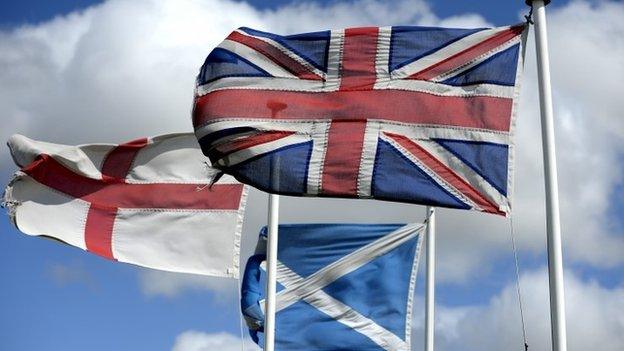Government defeated in Lords over English votes plan
- Published
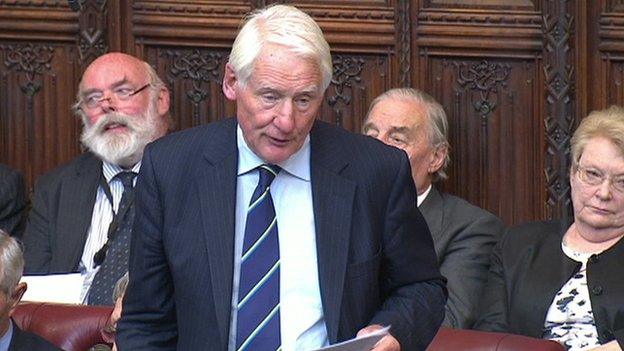
Peers from all parties supported Lord Butler's motion
The government has been defeated in the House of Lords over plans for so-called "English votes for English laws".
Peers defied the government by backing calls to set up a joint parliamentary committee to look at the proposals.
Lord Lawson and Lord Forsyth were among Conservative peers to rebel as the government lost by 320 votes to 139.
Ministers have had to redraft plans to give English MPs an effective veto on laws deemed to apply to England only and to delay a vote amid opposition.
The Conservatives made a manifesto commitment to give English MPs a decisive say over legislation exclusively affecting England but have run into trouble over the details of the plan and how it will be introduced.
The plan is for a new Commons stage to be introduced for laws passing through Parliament with England's MPs asked to accept or veto legislation only affecting England before it passes to a vote of all UK MPs at third reading.
Ministers say this will address the longstanding anomaly by which Scottish MPs can vote on issues such as health and education affecting England but English MPs have no say on similar matters relating to Scotland, where such policies are devolved.
'Rushed through'
A similar process would be used, including Welsh MPs, where matters covered only England and Wales.
But the SNP has said they will be excluded them from votes on matters affecting Scotland and create two classes of MP in the Commons while Labour has said the proposals are being rushed and need more detailed scrutiny.
Peers have now backed calls by Lord Butler, the former cabinet secretary and crossbench peer, for a special committee of MPs and peers to look into the proposals in depth.
Lord Butler said he backed the principle of requiring laws affecting England to have the consent of a majority of English MPs but there were better ways of approaching what has long been known as the "West Lothian question"
"Surely it is more important to get the proposals right than to rush them through," he said.
The vote does not bind the government unless the House of Commons also agrees to such a move.
The Leader of the Lords, Lady Stowell, maintained that peers would get a debate on the plans in the autumn, but after 30 years of trying to find a solution to the problem of English-only laws it was time to take action.
"There does come a point where we need to stop talking and get on with taking some action," she said.
- Published9 July 2015
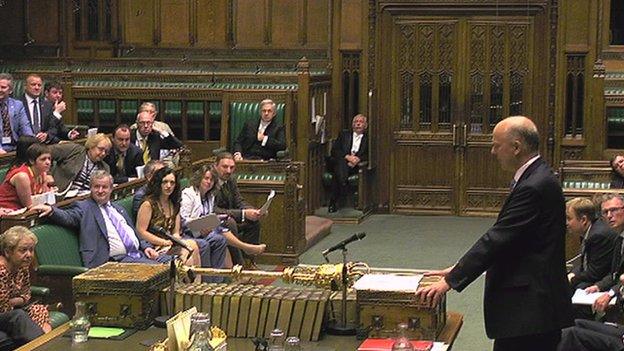
- Published7 July 2015
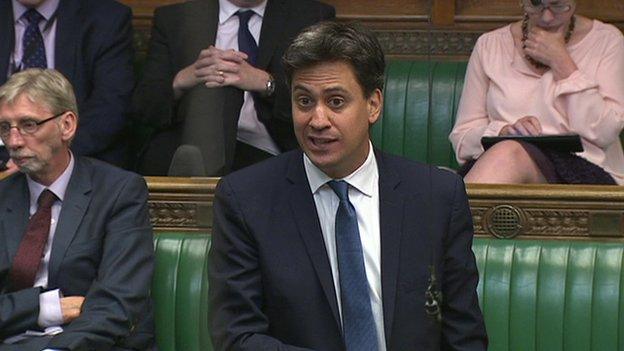
- Published1 July 2015
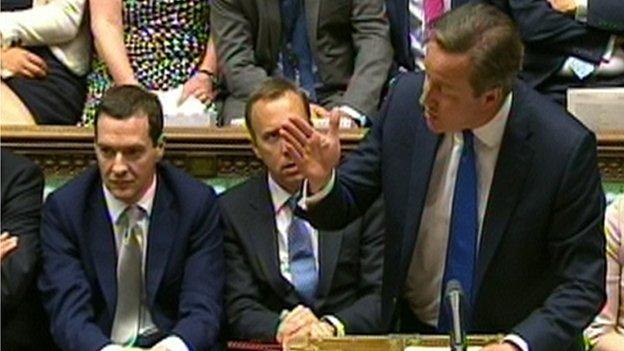
- Published27 May 2015
